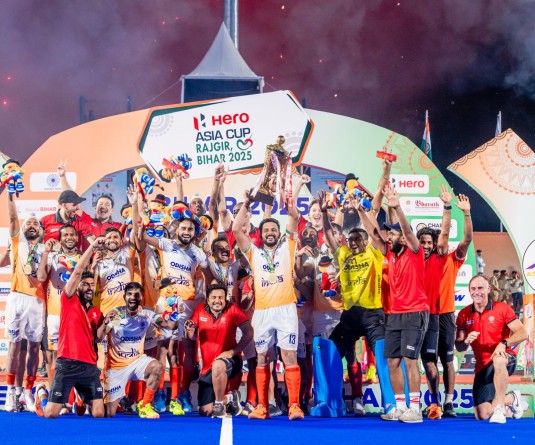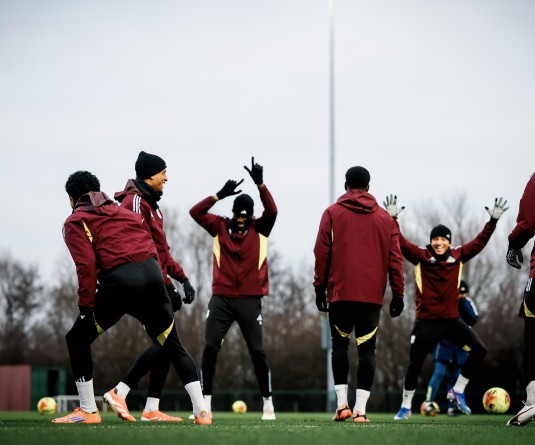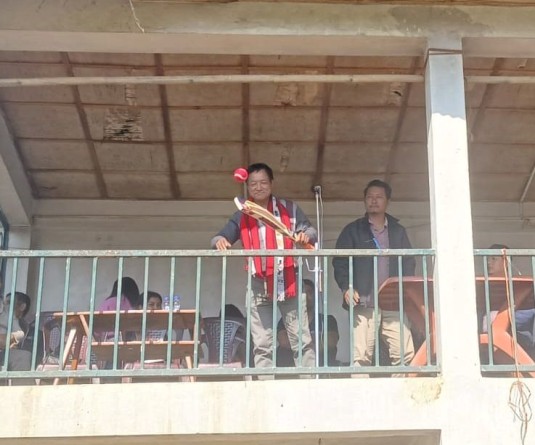Hangzhou: Gold medalist shooter India's Palak and silver medalist compatriot Esha Singh pose with their medals after the finals of women's 10m air pistol event at the 19th Asian Games, in Hangzhou on Friday, September 29, 2023. (Photo: IANS/@ianuragthakur)

Hangzhou, September 29 (IANS) Indian shooters Palak and Esha Singh won the gold and silver medals, respectively, in the women's 10m air pistol individual event at the 19th Asian Games, here on Friday.
The 17-year-old Palak set a new Asian Games record winning score of 241.2, while Esha, who is 18 years old, achieved a score of 239.7.
Earlier in the day, the pair was part of the women's 10m air pistol team that secured a silver medal.
This was Esha's fourth medal at the continental event as she claimed a silver medal in the women's individual 25m pistol event. Additionally, she joined forces with Manu Bhaker and Rhythm Sangwan to clinch the gold medal in the women's 25m pistol team event.
Asian Games: India's success in shooting at Hangzhou charted inside a 'war room' in NCR
It's a nondescript room in the Dr Karni Singh Shooting Ranges in the National Capital Region and it has played a key role in the superb performance of Indian shooters in the 19th Asian Games at Hangzhou.
Indian shooters' success in the Asian Games was charted via a unique simulation technique and dry shooting in this room, called the 'War Room' by the shooters.
India has so far bagged 18 medals including six gold medals in Hangzhou, which is the best-ever performance by the country in shooting in the Asian Games. The previous best haul by India in shooting was in 2006 in Doha Asian Games when Indian shooters bagged 13 medals -- 3 gold, 5 silver and 6 bronze.
On Friday, India's gold medallist in the Women's 10m Air Pistol Individual, Palak Gulia, talked about how simulating the scenario of the final inside the War Room in the Dr Karni Singh Ranges in Tughlakabad helped her prepare for the Asian Games.
"We simulated various situations in this War Room, like the final, the final four shots, the last two shots, and then checked the various parameters -- like pulse rate, heartbeat, breathing etc. After what break (10 shots, 12, 14 shots) are we getting hyper, when are we relaxed -- a condition in which we should be always in the final -- all this we did in the War Room," she said.
"I personally did a lot of sessions and also participated in the mind training sessions of which we had three every week. It helped me a lot in preparing for the Asian Games," said Palak after winning a gold and silver medal in the Asian Games.
The "War Room" training is the brainchild of the National Rifle Association of India's High-Performance Director, Pierre Beauchamp.
In the War Room, through photographs, the coaches simulate the shooting range in which the shooters will be participating next and then give them situations like in qualifying or in final dry shoot (follow the entire routine and just shoot without any ammunition).
"Earlier, the shooters used to dry-shoot at a wall. But now we procure photographs of the range and the targets which are projected onto the wall. we have some music and the atmosphere is like they will face in the venue. Preparing in this manner has really helped the shooters," said the National team's pistol coach Ronak Pandit.
He said along with this, the HPD has put in place a new mental-training programme since February 2022 and the NRAI has hired three sports psychologists to help run the mind-training programme.
Pandit is emphatic in his verdict on the role played by the War Room in helping the shooters win medals in Hangzhou.
"85 percent of the shooters that have trained in the War Room have won medals here," he said.
After the Asian Games, the coaching staff continued with the programme and also involved more data analysis to help the shooters prepare for the Asian Championships in Korea in various events in the lead-up to the Paris Olympic Games.






